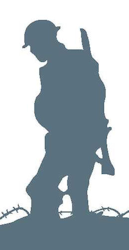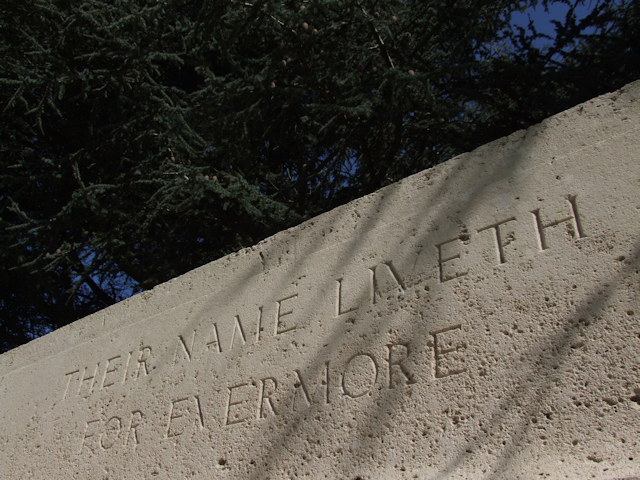Name
(Henry) Victor Fardell
Conflict
First World War
Date of Death / Age
17/08/1918
23
Rank, Service Number & Service Details
Corporal
10699
Bedfordshire Regiment
7th Bn.
Awards: Service Medals/Honour Awards
1914 /15 Star, British War and Victory medals
Cemetery/Memorial: Name/Reference/Country
SARRALBE MILITARY CEMETERY
D.23
France
Headstone Inscription
Not Researched
UK & Other Memorials
Benington War Memorial, St Peter's Church Memorial, Benington, St. Peter’s Church Roll of Honour Benington, St Mary the Virgin Church, Therfield, Non-conformist Chapel, Therfield, We are not aware of any memorial in Reed End
Pre War
Henry Victor Fardell was born in 1894 or 1895 in the village of Reed End, Therfield, Hertfordshire, the son of Henry & Alice Fardell.
In 1901, the family were living at Reed End, Therfield where father Harry (66) was an agricultural worker, his wife Alice (37) and they had Violet (15?) Irene (10), Henry Victor (6), Joseph (3) and Harold (1).
The family were living in Mount Pleasant, Reed End in 1911. Another daughter Doris (8) had arrived and a granddaughter Millicent (4) was living with them. Henry was working as a 16 year old bricklayer’s labourer.
His connection with the village of Benington has not been established but it is believed that he may have worked in the area.
Wartime Service
He arrived in France with the 6th Bedfordshire Regiment on the 30th July 1915.
His Soldiers Will, dated 4th August 1915, leaves all of his possessions to Mrs Henry Fardell, his Mother, of Mount Pleasant, Reed, near Royston, Hertfordshire.
It is known that Henry transferred to the 7th Battalion of the Bedfordshire Regiment possibly when a 1000 officers and men were transferred to this newly formed regiment. 7th Battalion of the Second New Army were attached to the 15th (Scottish) Division whilst training. On 25th February 1915, the Battalion was moved into the 54th Brigade of the 18th (Eastern) Division, where they remained until merged with the 2nd Battalion in May 1918.
The 7th Battalion were engaged in the following major battles throughout the war:
In 1916, the battalion were heavily engaged during The Battles of the Somme 1916, specifically at the Battle of Albert (including the storming of the Pommiers Redoubt on the 1st July 1916), the Battle of Bazentin (when the Division captured Trones Wood 14th July 1916), the Battle of Thiepval in September (including the storming of the northern section of Thiepval village and the front face of the Schwaben Redoubt on the 28th and 29th September 1916). The battalion were also involved during the Battle of the Ancre in November, albeit in a supporting role.
In 1917 they were again heavily engaged all year. The first operations were during the Operations on the Ancre, including the Actions of Miraumont in February and the Capture or Irles (on the Loupart Line) in March. Next, they were engaged in following up the German retreat to the Hindenburg Line in March, including the storming of Achiet-le-Grand between the 15th and 20th March 1917. In May they were also engaged in the Battle of Arras, namely at the Third Battle of the Scarpe. The final battle of 1917 was to be the Battles of Ypres 1917 (also called the Third Battle of Ypres, or Passchendaele), specifically in the Capture of Westhoek in August, the First Battle of Passchendaele in October.
In 1918 the battalion were heavily engaged yet again, in the First Battles of the Somme 1918 (also called the German Spring Offensives, "Operation Michael" or Kaiserschlacht), namely in the Battle of St Quentin and the actions on the Somme crossings in March, the Battle of the Avre in April, and the action at Villers-Bretonneux on the 24th April 1918.
Henry would probably have taken part in many if not all of these actions and experienced dreadful situations.
On transferring to the 2nd Battalion in May 1918 he was part of a group of 663 ‘Other Ranks’ and 30 officers.
He and was later captured by the Germans and died on the 17th August 1918 whilst a Prisoner of War in Germany .
There is a later Soldier's Will, dated 30th October 1917 again left all his worldly goods to his mother. It states that he died at the War Hospital in Meisenheim, Germany. Henry is buried in the Sarralbe Military Cemetery, Moselle, France.
Henry’s Medal Index Card states that he Died of Wounds, suggesting that his death may have occurred a short time after his capture.
Additional Information
His “effects” granted to mother Alice after his death totalling £45. 7s. 10d.
Acknowledgments
Malcolm Lennox, Paul Johnson, Jean Handley



